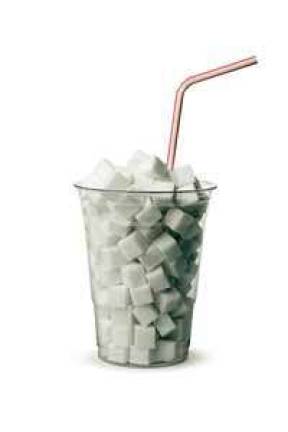West Siders, Nutritionists Weigh in on Mayor Bloomberg's Proposed Soda Restriction

By Helen Matsumoto and Rebecca Harris Since Mayor Michael Bloomberg announced last month his plan to institute a citywide ban on the sale of sugary beverages over 16 ounces, health experts, politicians, vendors and consumers have weighed in passionately on both sides. Manhattan's Upper West Siders are no exception. Some praised the mayor's fight against obesity. "It's like the smoking bans," said Patricia, a resident who declined to give her last name. "Sugary soda contributes to the obesity problem in this country, and the government has an obligation to take care of the citizens." The ban would apply to servings 16 ounces or larger of beverages containing more than 25 calories in 8 ounces and would be enforced at restaurants, food carts, movie theaters, delis and other eateries. Exceptions include drinks with 50 percent or more dairy or dairy substitute, diet sodas and beverages containing more than 70 percent juice. Convenience stores, like 7-Eleven, and supermarkets will still be allowed to sell larger bottles, and refills will be allowed. The proposal includes a $200 fine for vendors not in compliance. Some Upper West Siders argued that the ban, although promoting a positive goal, would be largely ineffective at curbing obesity. One teenage resident, Gautam Bhagat, said he supports the thought behind the ban but doesn't believe it will solve the greater problem. "It's not about cutting off access to sugary drinks. It's about changing habits. That's the core of the issue," he said. "While it's a good idea, I don't think it's fair of the government to tell people what they can and cannot eat." Some nutritionists, including Dr. Jamie Kane of Park Avenue Medical Weight & Wellness, agree that the restriction on large sodas will be ineffective at reducing obesity rates in the city. "People are still going to be addicted to sugary drinks, and there's nothing stopping people from going back for seconds," said Kane, a weight loss specialist who focuses on obesity. "I'm skeptical that this alone will have a major impact in the short term." "Even if you're not having the large beverages, there are other ways to get the calories," said dietician and nutritionist Amy Fleishman. "I've applauded [Bloomberg's] efforts in trying to make this a healthier neighborhood, but it's a very specific way to fix the problem and I don't think it's going to solve the bigger picture." Still, Kane and other nutrition experts noted that the ban could serve to spark conversation and perhaps increase awareness of the city's obesity problem. "If it can help train people to expect smaller amounts, maybe that would be helpful," he said. Despite debate over the merits of the ban, if implemented, the restriction would have little impact on the daily lives of Upper West Siders. A 2008 Department of Health and Mental Hygiene report found that only 10 percent of the nearly quarter of a million residents on the Upper West Side were obese, compared to the CDC-reported rate of countrywide obesity, 35.7 percent. Bloomberg's proposal was submitted last week to the New York City Board of Health, which will vote on its passage after a three-month deliberation period that will include public hearings. If approved, the ban would take effect early next year.